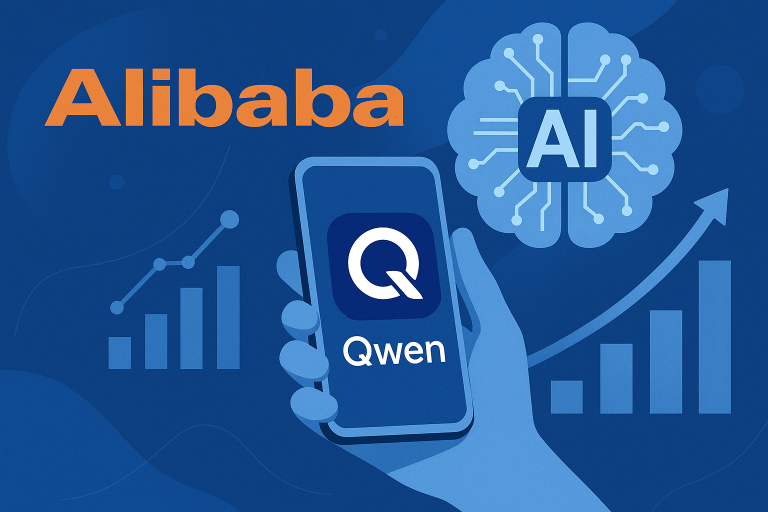Alibaba’s consumer AI strategy gained fresh momentum this month as the company relaunched its mobile apps under the Qwen brand and recorded more than 10 million downloads within a week.
The update marked a major shift in how Alibaba plans to present its artificial intelligence work to the public, with Qwen positioned as the central entry point for a growing catalogue of AI features.
The company’s Hong Kong-listed shares rose more than 5% on Monday after it reported the download figures in a WeChat blog post.
The speed of adoption reflects how quickly Chinese users are testing new AI services, especially as global platforms remain inaccessible in the country.
The early response also indicates that Chinese consumers are keen to explore domestic AI tools built for local needs and regulations.
Rising interest in local AI
The fast start places Qwen among the most rapidly adopted AI applications in recent years.
ChatGPT set the trend for early global growth three years ago, while other platforms, such as Meta’s Threads, expanded quickly through their existing user networks.
Qwen’s launch followed the unification of Alibaba’s earlier iOS and Android tools, allowing users to access its broader AI ecosystem in one place.
This approach aligns with the company’s aim to build a fully consumer-facing AI product that can grow across different services, rather than functioning only as a technical platform.
The shift underscores Alibaba’s intention to compete more directly in the expanding market for everyday AI apps in China.
Parallel momentum at Ant Group
Qwen’s early numbers arrived shortly after a separate announcement from Ant Group, Alibaba’s fintech affiliate, which introduced its multimodal AI assistant LingGuang last week.
Ant disclosed over the weekend that LingGuang had been downloaded more than a million times in the four days since launch.
The back-to-back updates showed how both companies are preparing for wider use of multimodal AI that can process text, images, and interactive tasks.
LingGuang’s early performance also added to the rising interest in alternatives built specifically for Chinese users who cannot access overseas options.
It further demonstrated how China’s technology firms are accelerating their push into consumer-facing AI tools that support diverse daily functions.
New AI direction under CEO Eddie Wu
Alibaba expects to add more agentic AI features to Qwen over the coming months.
These additions will support online shopping across services such as Taobao, forming a path toward a fully functional AI agent designed to guide users through daily tasks.
The company has already positioned itself as an AI-first business under Chief Executive Officer Eddie Wu.
As part of this shift, Alibaba plans to integrate lifestyle and productivity services directly into the Qwen app, including digital maps, food delivery, travel booking, office tools, education, health guidance, and e-commerce.
Investors will hear more about the strategy when Alibaba releases quarterly results on Tuesday and takes questions on how Qwen will support long-term growth.
The post Alibaba deepens AI push as Qwen app surges after major relaunch appeared first on Invezz

